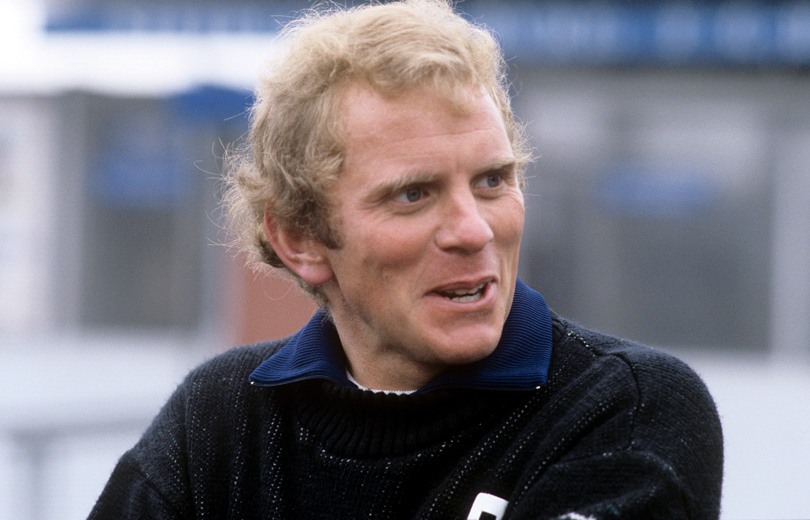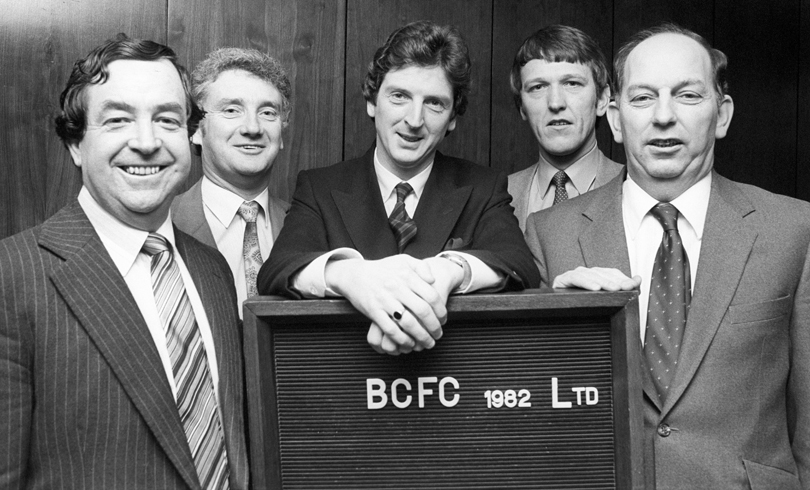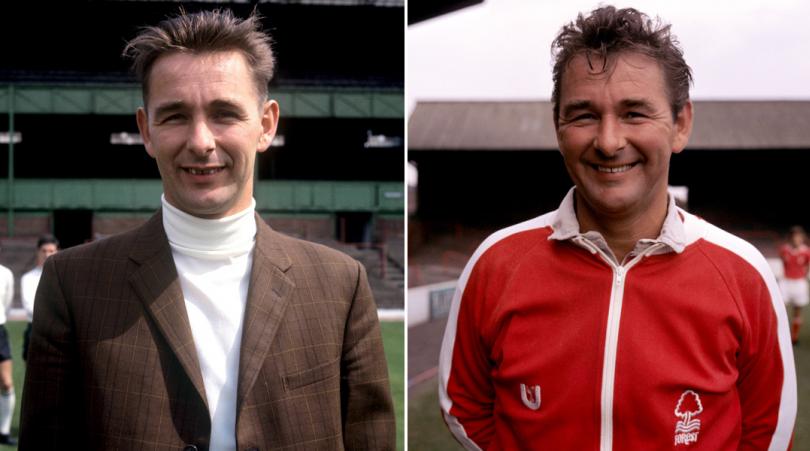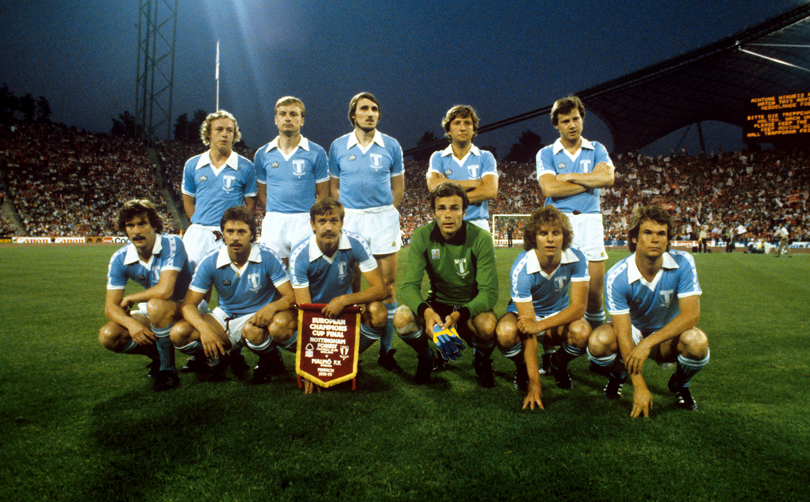Houghton, Hodgson and the unlikely Swedish love affair
Malmo are preparing to take on Real Madrid in the Champions League on Wednesday night, but back in the '70s a Swedish revolution was taking place via two of Croydon's brightest brains, writes Richard Edwards...

To get the first Swedish team to the final was an incredible achievement. Only three years ago, Bobby was given a lifetime achievement award here
There was a time in the '70s when the names of couples were combined to produce a single name. Bob and Les, for instance, became Bobles. Easy.
This may be an urban myth along with others of that decade, such as the growth of front garden pampas grass indicating that the couple occupying that three-bed terrace weren’t averse to a spot of swinging. Where’s this going? Well, speak to anyone versed in Swedish football during that decade and, in keeping with the period, it’s clear that Bobby Houghton and Roy Hodgson weren’t seen as two separate managers. Rather, they were a non-too-exotic English double act known simply as ‘BobnRoy’. Between them the pair provided one of European football’s most unlikely footballing dynasties – one that would transform the sport's fortunes in Sweden that is still remembered as fondly today as it was when bread cost 9p and the average take home was 32 quid a week.
Croydon calling
It's little wonder, then, that fans of Malmo and Halmstads come over all misty-eyed when recalling the feats of two Croydon boys who didn’t just bring success to their clubs but also utterly transformed Swedish football history. Malmo will run out against Real Madrid as 15-1 underdogs at the 24,000-capacity Swedbank Stadion in the Champions League on Wednesday night. But 36 years ago, Houghton – then just 32 and with no background as a manager in his home country – took them to within an ace of one of European football’s greatest fairytales. Halmstads, meanwhile, had never won the Swedish title before Hodgson arrived at the Orjans Vall, a record he took just one season to rectify.

Lars Lagerback is no stranger to miracles either, having helped Iceland to the 2016 European Championship after a staggeringly successful qualifying campaign, and he tells FFT that the English pair are still as popular in his home country as they were in the '70s. “Not only did they win a lot of things, they changed a lot in terms of coaching and playing style,” he says. “They had a huge influence. Bobby won the league with Malmo and then, of course, took them to the European Cup final in 1979.
“You might call that a miracle but it was certainly a very big thing for Swedish football at the time. To get the first Swedish team to the final was an incredible achievement. Only three years ago, Bobby was given a lifetime achievement award here. Both men are still hugely respected.”
My mate Roy
Get FourFourTwo Newsletter
The best features, fun and footballing quizzes, straight to your inbox every week.
Perhaps Houghton's greatest act was recommending a former school friend and coach, a lad called Hodgson, to rivals Halmstad in 1976
That both ended up in Sweden at all is another example of the role that fate can play in a career. Houghton was coaching junior sides at Bobby Robson’s Ipswich in 1973 before he headed off to South Africa for a 12-month stint with club side Arcadia.
Then there was an unlikely intervention from QPR, the club that offered Houghton a coaching post upon his return, with Gordon Jago’s resignation as R’s manager turning the wannabe coach’s future on its head.
“Gordon suggested I contact a club in Sweden where he had also been offered a post,” Houghton said in a February 1979 interview with the Daily Express, shortly before Malmo’s European Cup quarter-final.
Asked if anyone back home would remember him as a player with Fulham, Houghton – notoriously short of pace – quipped: “I’m afraid if anyone remembers me as a player it will be for the wrong reasons.”
Malmo’s punt on Houghton paid off handsomely with Malmo winning three Swedish titles and finishing runners-up twice in his first five years in charge. But still, perhaps his greatest act was recommending a former school friend and coach, a lad called Hodgson, to rivals Halmstads in 1976.

Between them the pair not only dominated Swedish football’s domestic honours board, but also introduced a change of style that propelled the country into European football's mainstream.
“They changed a lot of things,” says Lagerback. “I was going through my coach education at the time that Bob arrived. I came through with a player called Roland Andersson, who worked with both Bob and Roy.
"I saw what they did at first hand. Before, we had a long pre-season in Sweden, it was a lot of physical training. Bob put everything on the pitch, all the training was done there. No one before had organised teams in Sweden the way that he did. Under him, everyone knew their role.”
The playing style introduced by Houghton and Hodgson wasn’t to everyone’s liking, though, with two distinct factions developing within the country. “They played a really tough offside system and a zonal defence,” says Lagerback. “There was no real negative comments about them being English, no one was bothered by that, but there was a really big debate because the school that had been running football before was influenced more by German football and played in that style far more. All Swedish top football was divided into two philosophies. There was a lot of debate for the best part of a decade.”
The unlikely run
I wouldn’t make our junior team 6-1 [odds] to lose against Forest with proper organisation

While Hodgson worked wonders with Halmstads domestically, his first stab at the European Cup ended in a first-round defeat to Dynamo Dresden – a failure which mirrored that of Malmo the previous season.
By the time the 1978/79 competition rolled around, though, Houghton’s Malmo were intent on making up for previous failures.
A 1-0 win in Monaco was enough to send Malmo on their way, and by the time Dynamo Kiev, Wisla Krakow and Austria Vienna had been dispatched – perhaps too strong a word for a team reliant on a rock solid backline and playing on the break – Houghton found himself preparing for a final date with destiny against Brian Clough’s Nottingham Forest.
At odds of 6-1, Malmo were the biggest underdogs in European Cup final history and travelling Forest fans clearly weren’t given Houghton’s boys much of a chance either. “We’re bound to beat this bunch of bloody Eskimos aren’t we?” one fan said to the Mirror’s Frank McGhee as their plane took off for Munich.

Houghton, meanwhile, revealed that he'd already turned down an approach to manage Athletic Bilbao in order to concentrate on the task at hand. But unlike the alcohol consumed on that flight from London to Germany, he clearly wasn’t planning to win the trophy with champagne football.
“Our duty is not to football as a spectacle, but to our club,” he said on the eve of the final, before launching a broadside against what he viewed as insultingly long odds.
“There is no match in this world at this level that can be 6-1 against one of the teams,” he said. “I wouldn’t make our junior team 6-1 to lose against Forest with proper organisation.”
As it was, the final was a stultifying non-event, with a goal from £1 million man Trevor Francis eventually deciding the outcome on the stroke of half-time.
“In a final of any competition the only thing to do is win it,” said Houghton in his post-match press conference. “People never remember the team that came second.” That final assertion, though, couldn’t have been more wide of the mark. In Sweden, Malmo’s achievement is still celebrated, as are the contributions of BobnRoy. A reprise of those ’79 heroics might be asking too much against Madrid this week. One thing, however, is certain – Houghton will be spitting feathers at yet more insulting Malmo odds.
NOW READ THIS What does Roy know? What the England boss learnt with Switzerland in 1994
